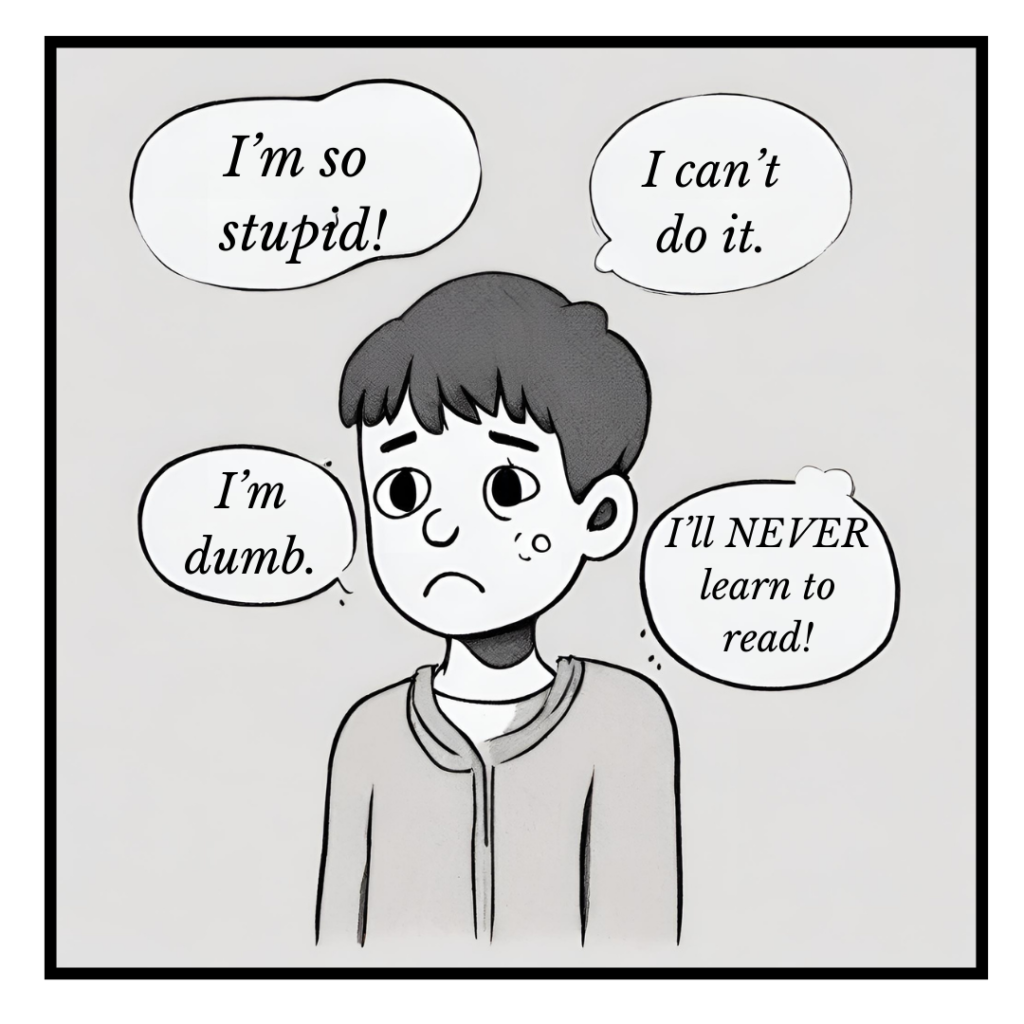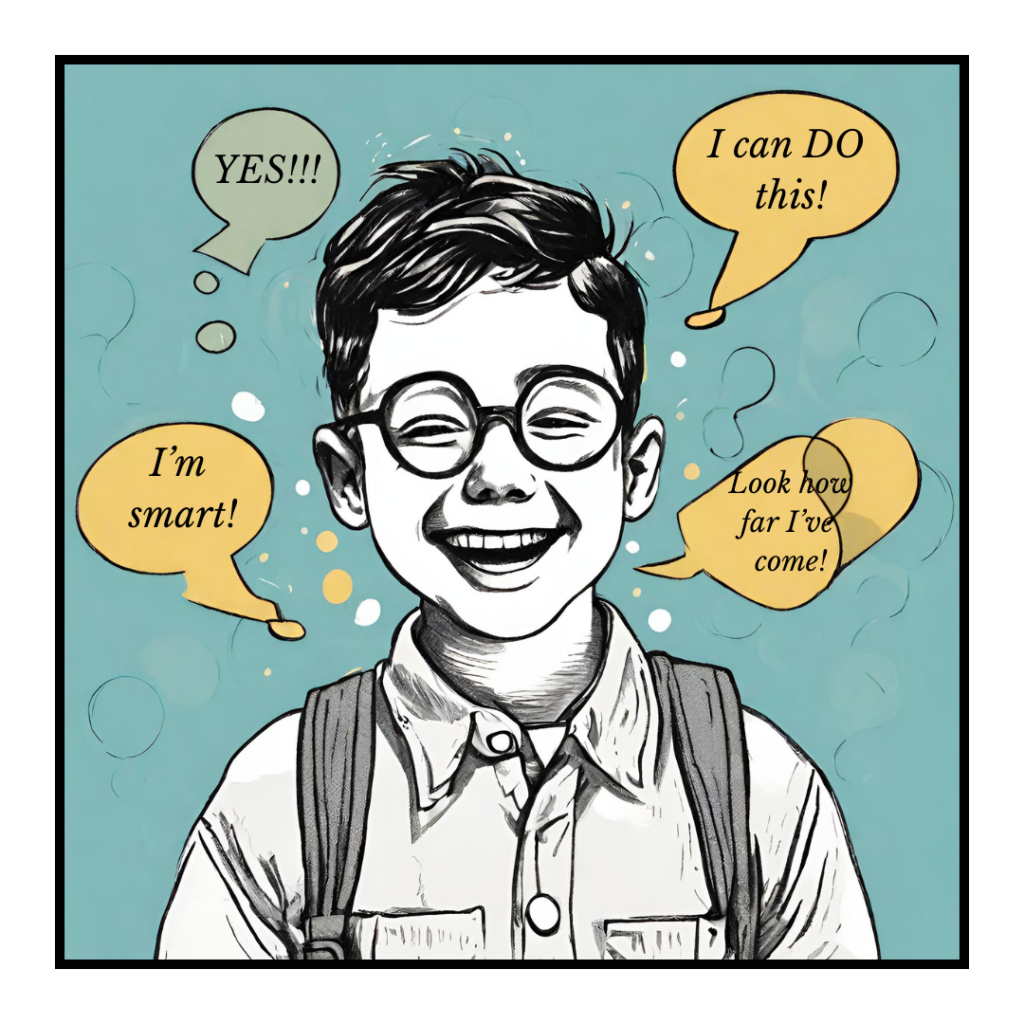
Dealing with the effects of school failures and frustration.
I’m so dumb.
I’m stupid.
Do these sound familiar? If you have a dyslexic child, chances are, yes.
Frequently, dyslexic children go through multiple years of feeling like a failure before they are diagnosed and start to receive the proper intervention. This can lead to years of bad grades, painful experiences in front of peers, and feelings of shame. I’ve talked to so many parents that say, “I don’t know where they get that from. We’ve never said anything like that. We always tell them how smart they are, how wonderful they are, etc.” Let me just say, this is not your doing. It is highly likely that your child has NEVER heard that come out of someone else’s mouth towards them. It does not stop them from feeling that way, though.
So my child is saying this, now what?
The good news is, once your child has been diagnosed and understands why they have struggled, damage control can begin. As a parent, you have a great opportunity to influence your child’s view of themself. Please understand that the change will NOT happen overnight. This is a process. As a parent, your role is to advocate for your child as much as possible so that they can start to have positive school experiences. Make sure that your child is getting support in school to help them be successful. Next, praise effort and growth, not numbers. If your child brings home a 50, but they got a 30 on the last assignment, praise the 20 point growth! That’s huge! If you notice that your child is actively working hard to better themselves, praise the effort! Overcoming a reading challenge is VERY hard. Having persistence to push through is praiseworthy AND a valuable skill your child will carry with them for the rest of their life.
One Final Note
I want to leave you with one final thought. Your child is tackling something far more challenging than most children. Allow them grace to feel their feelings and express their frustrations. Teach them how to give themselves grace as well. Have real conversations about the power of positive (and negative) self-talk. You would probably be shocked (and disheartened) by the things they tell themselves in their head.


